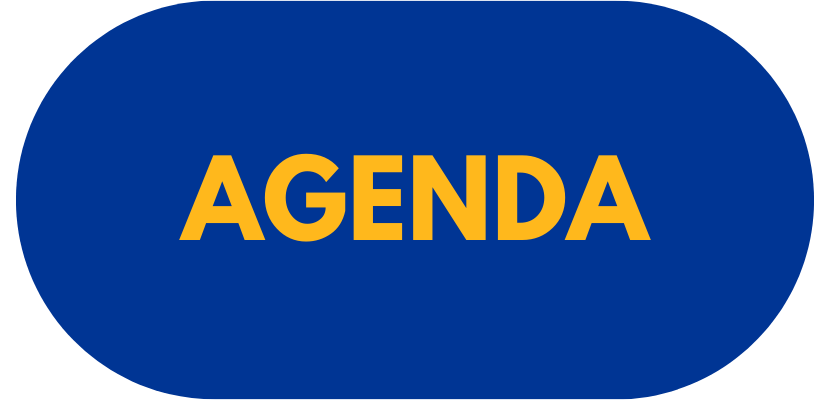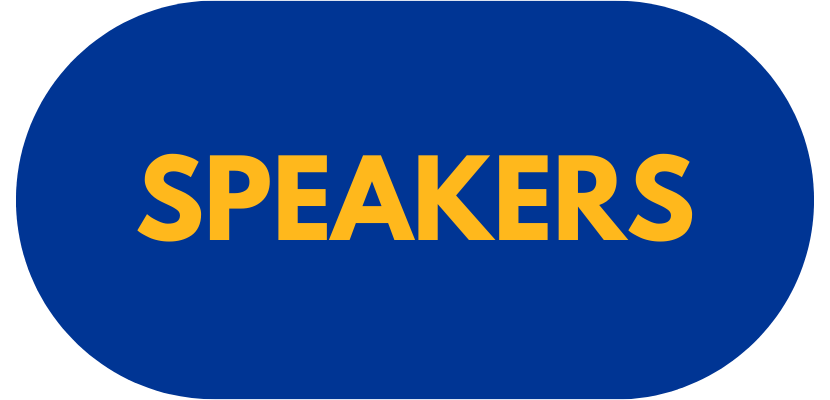
Held June 20 - Friday, June 23, 2023
This year’s theme — “Twenty Years of the Center for Urban Education: Memory, Futures, and Freedom” — emphasizes the significance of memory, futures, freedom to life, educational practice, collective work and communal responsibility. As we remember our histories during our 20th year, we invite a constellation of thinkers, some of whom have been with us before, into this year’s forum guided by overarching questions:
— Memory: What do you remember about the knowledge you shared (if a previous panelist for the Center’s events)? How, if at all, would you revise your thinking based on the current moment?
— Futures: How do various actors make meaning of educational possibilities amid catastrophe? What kinds of practices forge freer futures? How do youth, in particular, story their lives with schools, each other, and broader ecosystems? What are the tensions, and how does identifying these help map possibilities for struggle and change?
— Freedom: How might movements convey hopes, aspirations, mourning and efforts to end suffering? How do they articulate and organize for freedom and self-determination?
Gathering virtually and in-person this year, June 20-23, we engage local and national audiences intentionally inviting youth to design and dialogue. We invite registered participants across a wide range of educational settings (e.g., homes, neighborhoods, schools, families) into spaces of learning to inform justice-based intervention and education transformation.
We ask our participants to closely study the ideas, research and perspectives shared, to track themes and patterns, form questions, and then join smaller, facilitated study groups to share questions and work across sites mapping possibilities for transformative institutional practice and change. Together, we will map educational coordinates for justice and freedom beyond their usually narrow framings.
Agenda
- Tuesday, June 20 — Virtual Sessions
-
9:30 - 10 a.m. ET
Welcome Remarks
10 - 11:30 a.m. ET
Embodied Pedagogies: Memory, Mothering, and Making through GriefMothers who have lost children to state violence draw upon the educational work of remembering to support mapping freer futures. How do we learn from their grief and work? How do their various experiences with carceral institutions help us think about how we might pursue relationalities for self-determination and freedom?
Facilitator: Dorothy Roberts (University of Pennsylvania)
Panelists: Cleopatra Cowley-Pendleton (mother of Hadiya Pendleton), Michelle Kenney (mother of Antwon Rose), Tamika Palmer (mother of Breonna Taylor), Samaria Rice (mother of Tamir Rice)
1 - 2:30 p.m. ET
Freedom now: A dialogue on abolition and educationFacilitator: Sabina Vaught (University of Pittsburgh)
Panelists: Erica Meiners (Northeastern Illinois University), Connie Wun (Co-founder and Executive Director of AAPI Women Lead)
2:30 - 4 p.m. ET
Youth Panel
Facilitator: Ari Brazier (Center for Urban Education)
- Wednesday, June 21 — Virtual Sessions
-
10 - 11:30 a.m. ET
Breakout 1: Practices of Freedom: Memories of Study, Planning Educational FuturesFacilitator: Rachel Hopkins (University of Pittsburgh)
Panelists: Sister IAsia Thomas (Children's Window to Africa), Jason Orr (Propel Homestead, MS Social Studies), Tricia Barbas (Pittsburgh Science & Technology Academy, HS English), Philicity Walker (Woodland Hills High School), Nekiya Washington-Butler (University of Pittsburgh CASE Program), Amarachi Iheme (Rising Junior, Communication Sciences and Disorders & Linguistics).
Practices of Freedom is a multi-pronged approach to increase and support Black teachers, and transform schooling in our region. During this four-year initiative, youth, teachers, teachers in training, and community educators come together to study Black pedagogies and knowledge traditions, and radically reimagine teaching and teacher education.
Breakout 2: Early Excellence Project
Facilitator: Cassandra Brentley (Early Excellence Project)
Panelists: Tashanna Hall (Mommy's Imagination Station), Medina Jackson (Office of Child Development, P.R.I.D.E.), Kelley Johnson (parent and early childhood educator), DaVonna Graham Shannon (Early Excellence Project/University of Pittsburgh), Lisa Stewart (Kindergarten Teacher, PPS Miller)
The Early Excellence Project presents a discussion of culturally relevant praxis in early childhood learning. Centered on positive racial identity development in early childhood education, experts including parents, researchers, and practitioners share their experiences and recommendations.
11:30 a.m. - 12:30 p.m. ET
Practices of Freedom: An abolitionist dialogue with Kevin Mosley and Sabina Vaught
1 - 2:30 p.m. ET
Families & Communities as Sites of Educational Memories and FuturesFacilitator: Lori Delale-O'Connor (University of Pittsburgh)
Panelists: Cheryl Fields-Smith (University of Georgia), Nichole Sims (A+ Schools), Shaneé Washington (University of Washington)
3 - 4:30 p.m. ET
Youth Panels 2019-2022: A RetrospectiveWhat are the features of school and state violence as articulated by youth? How do they think and work toward freer futures, and how do they describe the problems of school and schooling?
- Thursday, June 22 — Virtual Sessions
-
10 a.m. - Noon ET
Writing for Inclusion in the ClassroomFacilitator: Khirsten Scott (University of Pittsburgh) and the Western Pennsylvania Writing Project
1 - 2:30 p.m. ET
Workshop on Combating Antiblack Racism in Learning EnvironmentsFacilitator: Martez Files (University of Pittsburgh)
3 - 4:30 p.m. ET
Reflection and Futures Planning WorkshopParticipants are asked to attend virtual sessions June 20-22, and then attend a closing session with Pitt School of Education professor Martez Files. Bring to this closing session your ideas and questions, the themes and patterns you have tracked, and work across educational sites mapping possibilities for transformative institutional practice and change.
- Friday, June 23 — In-Person Bonus Workshop
-
August Wilson Archival Research and Teaching
Friday, June 23
9 a.m. - 3 p.m. ET
CUE Auditorium (4310 Posvar Hall) (map)Want to learn how to use the August Wilson Archives at the University of Pittsburgh Library for your teaching and thought projects? This in-person workshop will be a mix of lectures and interactive engagement led by Khalid Long (University of Georgia).
Registration is now closed. Please contact us at CUE@pitt.edu with any questions.
About the Art:

“In crafting this year’s forum, we engaged the work of Pittsburgh artist, Ernest Bey, whose trilogy – 'INI, INI II, and The Shame of INI' indicts the modern world and its (educational) institutions for the criminal project of indoctrination in which we actually access and advance within systems of domination, but do not restructure or transform them. 'The Shame of INI' (middle image) portrays hands in circus patterns within the buttoned-down suit sleeves conveying the absurdity and the normalized lure of antiblackness and white supremacist capitalist patriarchy. Are the hands our own? Are they someone else’s? Does it matter if the effect is still the same? In dialogue with bell hooks’ book, Where We Stand, this year’s forum painting also asks a critical question: In order to learn, why must we forget?
"The images recall the induced amnesia reified in generation after generation of conquest and enslavement. Masks cover the truth of our faces. In one part of the trilogy, hands cover our mouths; in the others, digital codes (instead of a mouth) critique 'artificial intelligence' trends with a warning to beware of what these tools will mean for domination and freedom, both within and beyond schools. The coded mouth reminds us that in a speculative world created by and for a human project, there is a speculator and a speculated. Despite these realities, the eyes are deeper and piercing, the foreheads are prominent, and the masks are indigenous, reminding us that masks do not have to conceal us from ourselves but can conceal our plans. They do not have to convey extraction; they can convey shared traditions. The world we seek will not come easy. The will to change is elusive, but faithful collectives must study to remember, study for our future, and study the praxis of freedom." - T. Elon Dancy II, CUE Executive Director
“The inspiration for INI was a trip that I took to Jamaica, and the local Jamaicans referred to us as INI and I was curious what that meant so I asked them, and they said, 'You don’t know me, man, I don’t know you, but we are INI. We are same culture! We are same people!' And, immediately, I was inspired with the thought of if we’re the same people, then why do we mask our feelings, and I’m curious why we treat each other this way. So the checkered background is why we should check out our feelings towards each other. The first painting was completed. I also saw a second one, and when I did 'INI II', I was inspired to do a third, making it a trilogy. That’s where 'The Shame of INI' was born, and the shame is why have we turned on each other in such devastating ways, the violence that we have felt has damaged our community.” - Ernest Bey, artist
Co-Sponsors:
- Gwen's Girls
- Heinz Endowments
- Kinloch Commons for Critical Pedagogy and Leadership
- Western Pennsylvania Writing Project


